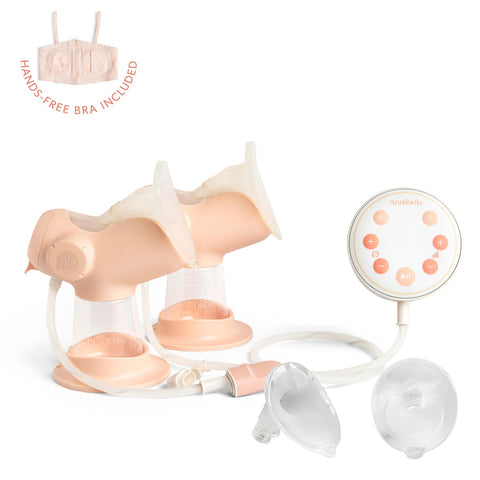Welcome back! In this article we’ll dive deeper into the specifics. We’ll cover what foods nursing mothers should avoid and some special considerations to keep in mind while breastfeeding.
Better Left Off the Plate
- Caffeine: While that cup of coffee might be your lifeline after a sleepless night, too much caffeine can make your little one irritable or disrupt their sleep. Stick to about 300 mg per day—that’s roughly two 8-ounce cups of coffee.
-
Tip: If you need a coffee break but don’t want to overdo it, consider decaf or herbal teas that are naturally caffeine-free. Your baby will thank you (with fewer midnight dance parties).
-
Alcohol: Alcohol can pass through breast milk and affect a baby’s development, particularly their sleep and feeding patterns. If you indulge, aim to wait at least two hours per drink before breastfeeding. Or, you can pump n’ dump to be extra cautious.
- Processed Foods: These are usually loaded with sugar, salt, and unhealthy fats—none of which will do you or your baby any favors. High-sugar snacks can drain your energy, and overly salty foods can mess with your hydration.
-
Better choices: Swap out sugary drinks, packaged snacks, and fast food for whole, fresh foods like fruits, veggies, and whole grains.
- Certain Fish: Fish are an excellent source of omega-3s, but certain types are high in mercury, which can be harmful to the baby’s developing nervous system. Avoid fish like swordfish, king mackerel, and tilefish and stick to lower-mercury fish like salmon, sardines, and trout to get the benefits without the worry.
Happy Feeding, Happy Baby
-
Managing Food Allergies and Sensitivities: Sometimes, babies can be sensitive to foods in your diet, with dairy, eggs, and nuts being common culprits. If your little one seems fussy, gassy, or has rashes, it might be time to explore potential food sensitivities.
- Addressing Common Breastfeeding Issues: Diet can play a role in common breastfeeding challenges, such as colic or excessive gas. If your baby seems uncomfortable after feedings, keeping a food diary can help you pinpoint which foods might be causing discomfort. Your doctor can also help you navigate these bumps in the road.
Nursing Hacks for Busy Moms
-
Meal Planning and Preparation: As a busy mom, meal planning can be your best friend. Make big batches of healthy meals and freeze them so you’re never caught off guard during hectic days.
-
Quick and Nutritious Snack Ideas: Let’s be real—when you’re a nursing mom, snacks are essential. Keep your kitchen stocked with easy-to-grab goodies like nuts, fresh fruit, yogurt, whole-grain crackers, and veggies with hummus. They’re tasty, nutritious, and quick, so you can fuel up even when you’re short on time.
- Self-Care and Support: Breastfeeding can be exhausting, physically and emotionally. Prioritize self-care by staying hydrated, resting as much as you can, and making sure you’re eating well. Don’t hesitate to lean on family, friends, or lactation consultants for support when needed.
Nourish Your Baby, Nourish Yourself
Staying mindful of your diet while breastfeeding not only helps you feel your best, but also ensures your baby gets top-notch nutrition. This guide has covered the essentials, but for personalized advice, consult with your healthcare provider or a nutritionist. They can tailor recommendations to your specific needs. Now, go forth and nourish yourself






